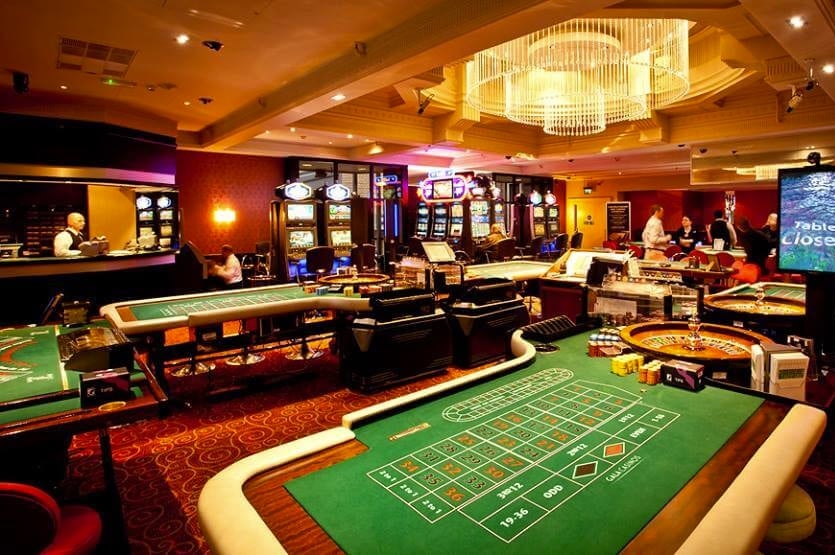
A realm of gambling games is continuously changing, shaped by shifting laws, technological progress, and shifting market demands. As governments and regulatory bodies strive to create a secure and just space for players, the framework of casino regulations is undergoing significant modifications. Understanding these shifts is essential for both casino operators and players looking to explore the exciting yet complicated realm of gambling.
In recent times, numerous regions have proposed and implemented new regulations targeting enhancing the protection of players while promoting responsible gaming. These developments not only impact the varieties of casino games offered but also the manner in which they are advertised and accessed. In this piece, we will examine the most recent regulation changes, their implications for the industry, and that which players can look forward to as they interact with their favorite gambling games.
Updated Legislative Structures
New developments in game legislation are shaping the prospects of casino entertainment across various jurisdictions. Regulators are acknowledging the necessity for a comprehensive regulatory framework that not solely protects gamblers while also provides fair play and accountable gambling. These guidelines are crafted to resolve challenges such as internet-based gaming, cryptocurrency currencies, and developments in the technological field, reflecting the transforming environment of the casino industry.
One notable trend is the introduction of tighter regulations regarding clarity and consumer safety. Gaming establishments are now mandated to offer concise data on probabilities, payout rates, and the possible hazards involving betting. This change aims to empower gamblers by helping them take educated decisions while also assisting to fight gambling addiction through sensible play measures. Casino owners are required to establish self-banning systems and provide assistance for gamblers seeking aid.
Additionally, novel laws are being applied to emerging innovations such as VR and blockchain in casino games. Authorities are developing guidelines to guarantee that these technologies maintain authenticity and justice while also protecting player information. As the field evolves, regulators are modifying to confirm that developments enrich the gambling environment while safeguarding both gamblers and entities.
Impact on Casino Game Diversity
The latest updates in gaming regulations have created fresh avenues for gaming experiences, allowing for greater breakthroughs and variety within the industry. As regulatory bodies update their standards, creators are encouraged to create original game offerings that address a larger audience. This has led to a diverse collection of fresh titles, incorporating various topics, styles, and mechanics that were previously neglected or restricted by stricter rules.
With a more flexible regulatory environment, gambling venues are now capable to test alternative game formats, including skill-focused games and participatory play. This shift has produced a boom in fusion games that combine classic gambling features with contemporary gaming styles, such as digital gaming and AR. By expanding the variety of games offered, casinos can draw in not only veteran gamblers but also non-professional players who may prefer alternative options.
In addition, the evolution of regulations has emphasized clarity and justice in gambling, which could build greater trust from players. As a result, consumers are more open to consider a wider variety of gaming experiences, realizing they are interacting with services that follow modern guidelines. This growing belief enhances engagement and can ultimately drive financial success as more diverse choices cater to diverse preferences and demographics in the casino sphere.
Upcoming Trends in Regulation
As the gambling landscape changes, regulators are more and more focused on adopting digital solutions to enhance clarity and justice. The adoption of crypto technology into gambling operations is anticipated to gain ground, allowing for increased oversight of operations and ensuring that activities remain equitable and secure. This transition could lead to a compliance framework that embraces these innovations, promoting faith among gamblers and businesses alike.
In addition to tech-based adoption, there will likely be a stronger emphasis on prudent gaming practices within the regulatory environment. Okking Authorities are anticipated to implement tougher measures to promote participant protection, including mandatory self-exclusion programs and effective age verification mechanisms. This shift aims to defend susceptible populations while ensuring that the pleasure of gambling games is preserved for prudent gamblers.
Lastly, as online gaming continues to expand globally, harmonization of regulations across different areas will become a urgent need. Countries may endeavor to work together more closely on common standards for certification, operation, and taxation. This could lead to a more efficient regulatory process for global operators, fostering a greater acceptance of internet gambling platforms while maintaining high levels of player protection and fairness in the gaming industry.